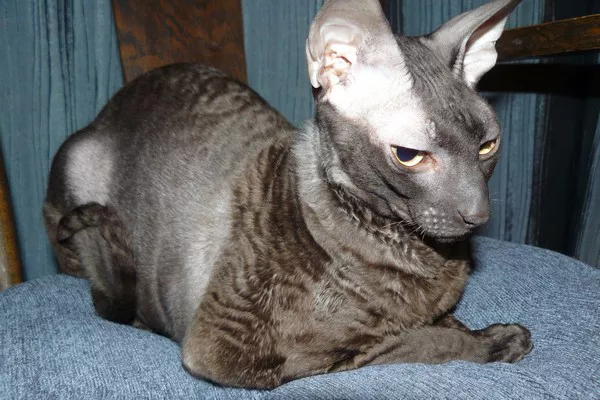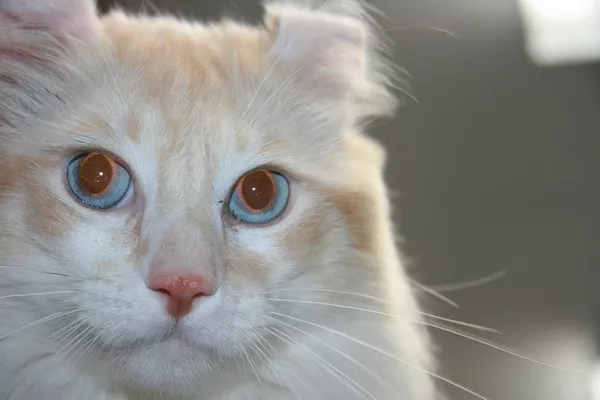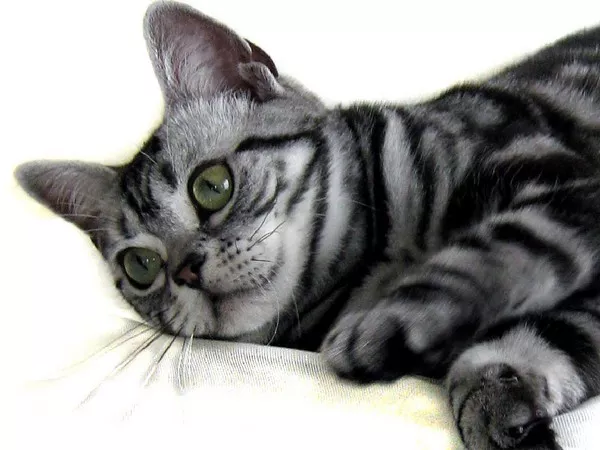In the world of feline companionship, the Cornish Rex stands out as a breed with distinctive characteristics, including its elegant, slender frame and unique coat. While the Cornish Rex’s appearance may capture the attention of cat enthusiasts, questions often arise regarding their dietary needs and feeding habits. In this comprehensive guide, we embark on a journey to explore the feeding requirements of the Cornish Rex, shedding light on how much food they should eat and the factors that influence their appetite and dietary preferences.
The Cornish Rex: A Breed Apart
Before delving into specifics about their dietary needs, it’s essential to understand what sets the Cornish Rex apart from other cat breeds. The Cornish Rex is known for its striking appearance, characterized by its slender, muscular body, arched back, large ears, and distinctive wavy coat. Unlike traditional cat breeds, the Cornish Rex’s coat lacks guard hairs, giving it a soft, curly texture reminiscent of lamb’s wool. Their unique appearance and lively, affectionate temperament make them popular choices for cat lovers seeking a unique and engaging companion.
Understanding the Cornish Rex’s Metabolic Rate
One factor that sets the Cornish Rex apart from other breeds is its metabolic rate. The Cornish Rex has a higher metabolic rate compared to many other cat breeds, which means they require more calories to fuel their active lifestyle and maintain their body condition. Their fast metabolism and slender build make them efficient hunters and energetic companions, often displaying a playful and inquisitive nature.
Factors Influencing Feeding Needs: Unraveling the Variables
Several factors can influence how much food a Cornish Rex should eat, including age, weight, activity level, metabolism, health status, and dietary preferences. Understanding these factors and tailoring your Cornish Rex’s diet to meet their specific needs is crucial for promoting optimal health, weight management, and overall well-being.
1. Age:
Age plays a significant role in determining a Cornish Rex’s feeding needs. Kittens require a diet that is rich in essential nutrients, vitamins, and minerals to support their growth and development during their first year of life. As they transition into adulthood, their dietary needs may change, requiring adjustments in portion sizes and nutrient composition to maintain their health and vitality.
2. Weight:
The weight of a Cornish Rex can also influence their feeding requirements. Overweight or obese cats may require fewer calories to maintain a healthy weight, while underweight cats may need additional calories to support weight gain and muscle development. Monitoring your Cornish Rex’s body condition score and adjusting their diet accordingly can help ensure they maintain an optimal weight and body condition.
3. Activity Level:
The activity level of a Cornish Rex can vary depending on factors such as age, temperament, and environmental enrichment. Cornish Rex cats are known for their playful and energetic nature, often engaging in active play and exploration throughout the day. Providing ample opportunities for exercise and mental stimulation can help satisfy their natural instincts and prevent boredom or destructive behaviors.
4. Metabolism:
As mentioned earlier, the Cornish Rex has a higher metabolic rate compared to many other cat breeds. This means they require more calories to meet their energy needs and maintain their body condition. Choosing a high-quality cat food that is rich in protein and nutrients can help support their fast metabolism and provide the energy they need to thrive.
5. Health Status:
The health status of a Cornish Rex can also impact their feeding needs. Cats with certain medical conditions, such as diabetes, kidney disease, or thyroid issues, may require special diets or feeding protocols to manage their condition and support their overall health. It’s essential to work closely with your veterinarian to develop a tailored nutrition plan that meets your Cornish Rex’s specific health needs.
6. Dietary Preferences:
Like all cats, Cornish Rex cats may have individual dietary preferences and tastes. Some cats may prefer wet food, while others may prefer dry kibble or a combination of both. Offering a variety of textures, flavors, and formulations can help stimulate their appetite and ensure they receive a well-rounded diet. It’s essential to observe your Cornish Rex’s eating habits and adjust their diet accordingly to accommodate their preferences.
Feeding Guidelines: Tailoring Portions to Meet Needs
While there is no one-size-fits-all answer to how much food a Cornish Rex should eat, there are general guidelines that can help you determine appropriate portion sizes based on factors such as age, weight, and activity level. It’s important to feed your Cornish Rex a balanced diet that provides essential nutrients, vitamins, and minerals to support their overall health and well-being.
1. Kitten Feeding Guidelines:
For Cornish Rex kittens, feeding guidelines may vary depending on their age and stage of development. Kittens require frequent, small meals throughout the day to support their rapid growth and development. A diet that is specifically formulated for kittens provides the essential nutrients they need for healthy growth, including high-quality protein, fats, vitamins, and minerals.
2. Adult Feeding Guidelines:
Adult Cornish Rex cats typically require two to three meals per day, depending on their age, weight, and activity level. It’s essential to monitor your cat’s body condition score and adjust their portion sizes accordingly to prevent overfeeding or obesity. Feeding a diet that is appropriate for their life stage, such as an adult maintenance formula, helps ensure they receive the nutrients they need without excess calories.
3. Senior Feeding Guidelines:
As Cornish Rex cats age, their metabolism may slow down, and their activity level may decrease. Senior cats may require fewer calories to maintain their weight and energy levels. Feeding a diet that is specifically formulated for senior cats helps support their changing nutritional needs and promotes healthy aging.
Tips for Feeding Success:
1. Provide access to fresh, clean water at all times to support hydration and overall health.
2. Choose a high-quality cat food that is formulated to meet the nutritional needs of Cornish Rex cats.
3. Monitor your cat’s body condition score and adjust their portion sizes as needed to maintain an optimal weight.
4. Offer a variety of textures and flavors to stimulate your cat’s appetite and prevent mealtime boredom.
5. Avoid overfeeding or free-feeding to prevent obesity and related health issues.
Conclusion: Nourishing the Cornish Rex
In conclusion, understanding how much food a Cornish Rex should eat requires consideration of factors such as age, weight, activity level, metabolism, and dietary preferences. By tailoring their diet to meet their specific needs and providing a balanced, nutritionally complete diet, you can ensure your Cornish Rex receives the nourishment they need to thrive. Whether they prefer wet food, dry kibble, or a combination of both, providing a variety of options and monitoring their eating habits can help promote optimal health and well-being for your Cornish Rex companion.



























